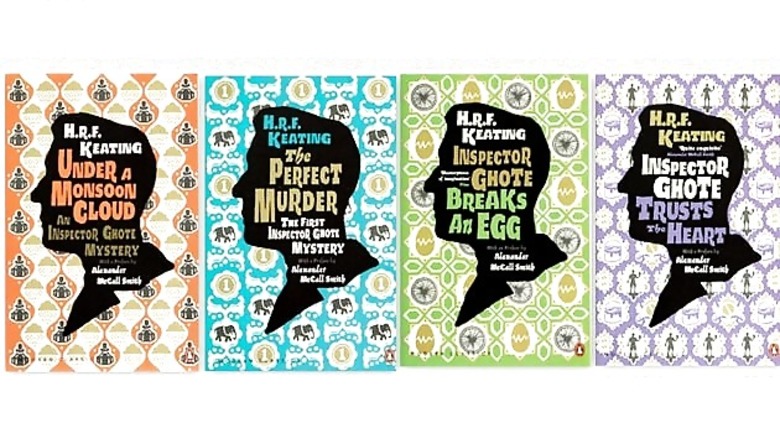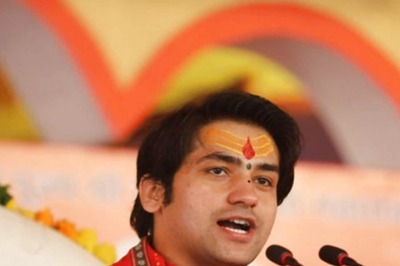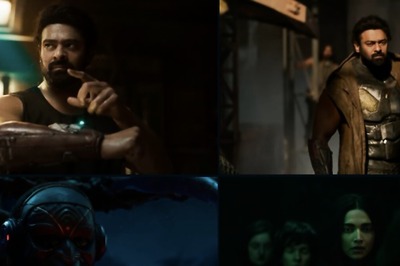
views
New Delhi: Byomkesh Bakshi, the well-known Satyanweshi, will shortly be seen on the big screen in two new movies. It was about time Bakshi, who featured in the popular TV series of the 90s, was made into movies, and we hope a series is in the offing. Meanwhile, another iconic detective is yet to get the limelight he deserves: Inspector Ghote, whose stories are just as remarkable as their author.
H R F Keating, the British author who created Inspector Ganesh Ghote of Bombay Police in the 1960s, had never visited India till then. From 'The Perfect Murder' (1964) to 'Bats Fly Up for Inspector Ghote' (1974), Keating wrote nine novels featuring his detective before the author visited India for the first time. Keating was to write 16 more novels, including a short story collection, till 2009.
But Keating's stories do not lack much just because he hadn't seen India at first hand. Ganesh Ghote is a mild-mannered detective, but very dogged while on a case. Even more than the corrupt ministers, businessmen, local gangsters and other bad guys that populate Ghote's world, he has to deal with the biggest villain of them all, India's bureaucracy. Ghote is frequently saddled with cases, matters and paperwork that sidetrack him from his main job. On other occasions he has to spend more time massaging official egos and ruffled feathers than chasing bad guys.
Through him, his wife Protima and son Ved, the reader sees slices of Indian life captured as few other novelists, Indian or not, have ever managed. The complexities of urban life in Bombay and Calcutta are presented in all their colour and peril.
Keating also has an inimitable eye for two essential - but rare - elements in Indian English fiction. The first is his ear for diction, for accents and constructions, for the peculiar nuances of Indian spoken English. Here's a seth, confident in his wealth and contempt for his underlings, expansive in his words, flowing in his sentences. There's a lower-ranked police constable, patient and tolerant but neither naïve nor completely cynical in the crowded Mumbai streets.
Here's an upper class Indian woman of the 60s and 70s, trying to straddle the gulf between westernized urban life and what passes for Indian values in a rich man's home. There's a poor lower caste woman with barely any possessions, lost in every sense of the word. Keating's prose makes them as audible as a playwright would have.
Keating's second stroke of genius is his apparently broad knowledge of popular entertainment tropes in India, both in Indian movies and traditional theatre forms. Spoiler alert: Ghote meets an old lower caste woman on a train while going to a village to investigate a local political boss in a murder case. It is only towards the end that the old woman pops back into the story and declares the upper caste politician is not actually upper caste, but (cue music), her missing son from decades earlier. Keating's characters are so solidly crafted that they seem to be created less for a western audience and more for us, because only someone very familiar with India would identify with these men and women.
Inspector Ghote has acquired a legion of diehard fans over time. Prominent among them is Alexander McCall Smith, creator of such noted series as The No. 1 Ladies' Detective Agency (set in Botswana and simply delightful); 44 Scotland Street and The Sunday Philosophy Club. Smith is such a Ghoteist that he's written the introduction to a recent reprint of the entire adventures of the good inspector.
In his Feluda mystery, Kailashey Kelenkari (1974) set in Maharashtra, Satyajit Ray brings in a Sub-Inspector Ghote to the plot. Ray being well acquainted with popular literature of the period, it is likely that this was a homage to the original Ghote, who had been around for a decade by then.
While Ganesh Ghote is one of those characters built to be immortal, his world reflects changes in Indian society. Early stories from the 60s and 70s show corrupt seths, class rivalries, old-time gangsters and so on. As the years pass, the villains become less gentlemanly and more menacing, everyday life becomes more bitter and acrimonious (the corrupt politicians stay the same, though). Through all these changes, Ghote soldiers doggedly on, finding his murderers, thieves and smugglers, and bringing a lot of charm and whimsy into what is, after all, a very grim genre.
Merchant-Ivory did make a movie based on the first Ghote novel, The Perfect Murder, with Naseeruddin Shah as the detective, in 1988. So now that Mumbai filmmakers are rediscovering Indian detective legends, perhaps Inspector Ghote can return to the streets of Mumbai once more. And if someone comes up with a Justice League-like idea of Byomkesh Bakshi, Feluda and Inspector Ghote battling crime tougher, what a movie it would be.




















Comments
0 comment